2013 Brazil Bus Taxes Protests
Confirmed 13,217
Part of a series on Brazil. [View Related Entries]
2013 Brazil Bus Taxes Protests
Part of a series on Brazil. [View Related Entries]
Overview
The 2013 Bus Taxes Protests refers to a series of ongoing social protests that erupted across Brazil in June 2013. The demonstrations initially began in São Paulo in response to a hike in public transportation fares, but quickly spread across other cities to address other socioeconomic issues, including police brutality, corruption and government spendings in preparation for the 2014 World Cup. On the web, the protests soon became dubbed the "Salad Revolution" after a Brazilian journalist was arrested for carrying vinegar in his backpack to fight the effects of tear gas[1].
Background
In September 2012, a series of protests against a fare increase took place in the city of Natal under the banner "Revolta do Busão"[2] (Bus Uprise), ultimately forcing the city government to repeal the hike. In March 2013, similar protests in the city of Porto Alegre also managed to revert a proposed fare hike in public transportation.[3]
São Paulo Public Transit Fare Hike
In January 2013, São Paulo's mayor Fernando Haddad announced that public bus and subway fare will be increased from R$ 3.00 to R$ 3.20 [4]. A few days after the policy went into effect on June 1st, the first major protest against the fare hike was organized on Facebook[5] by the civil rights group Movimento Passe Livre on June 6th along Paulista Avenue. The demonstrators clashed with the military police and left many shops vandalized. In the following week, the public demonstrations across the city continued to grow in size and intensity, which culminated in another major violent clash on June 13th that left several protesters and journalists arrested or injured from rubber bullets.
Movimento Passe Livre
The first call for the manifestations against the increase on the public transportation fares was organized by "Movimento Passe Livre" (Free Pass Movement) [6], a "social, autonomous, horizontal, independent and non-political" group founded in 2005, who fights for the improvement of public transportation and urban mobility by the governments across Brazil.

Notable Developments
June 6th: São Paulo Protests
Right after the policy took place in São Paulo, on June 2nd, an event on Facebook was created calling people for a manifestation on June 6th against the the fare hike. According to the media coverage, the first protest gathered arround 2000 people in Avenida Paulista and ended up in a clash against the police, with over 15 people arrested[8]. A second event was created, to take place on June 7th, and more than 5000 people were confirmed[9]. The protesters managed to block the main road that cross the city, and finished the act with no major incidents in Avenida Paulista[10]. Other protest was marked to happen[11] on June 11th, and gathered this time over 10000 according to statistics. Again, there were confrontations with the police and over 20 people were arrested[12].
June 13th: Police Violence
On the fourth day of protests, things really started to heat up. The movement, marked to take place on June 13th in front of the Teatro Municipal in São Paulo, drew over 20,000 demonstrators, according to press statistics. Once the group reached Avenida Paulista, they were received by the shock batallion of the military police, and a major confrontation happened. According to witnesses, it started when the leaders of the movement tried to negotiate with the police where they would continue to protest.
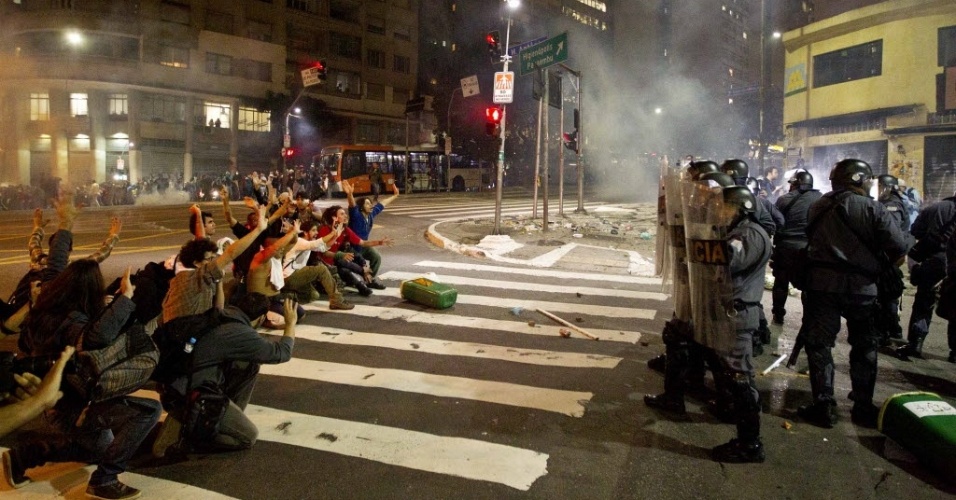
Moments later, the police started to indiscriminately attack the manifestants, even though some decided to sit down on an act of non-violence. After that, the group re-mobilized around the streets near Paulista Avenue, vandalizing public patrimony and building barricades to stop the advance of the police. Reports mention a total of 240 arrests, incluiding protesters and random people on the streets[13]. Press agents and anyone recording the happenings were either arrested, intimidated or had their devices confiscated. A reporter was shot in the eye by a rubber bullet[14], and another one was arrested for porting vinegar[15] (used to blend the effects of tear gas).
Nationwide Protests
In the following days after the São Paulo police crackdown, the movement rapidly grew in numbers and inspired similar protest in less populated cities within Brazil. Similar mobilizations with a huge number of participants took place in other cities like Belo Horizonte (30000 people)[16], Rio de Janeiro (40000)[17], Curitiba (10000)[18] and Belém (15000)[19]. In the capital city of Brasília, a group managed to break inside the National Congress, and soon the place was overwhelmed with over 10000 people[20].
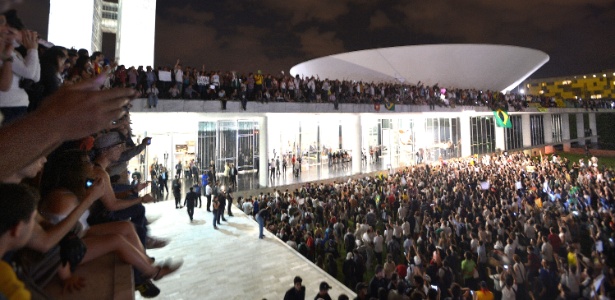
The second biggest manifestation to date took place in São Paulo, on June 17th, with more than 65,000 demonstrators taking over the streets and protest not only against the fare hike, but other socioeconomic issues in Brazil, mainly police violence, political corruption and the government spendings on the upcoming 2014 FIFA World Cup[21].








International Support
As the protests continued to grow in number and scale, alongside the repression they followed, the movement soon captured the attention of the international media. Newspapers like The Guardian[22], New York Times[23], Le Monde and El Pais[24] published articles trying to explain the reasons behind the mobilizations. Several other acts, organized via Facebook by the brazillian community worldwide, took place on world capitals, like London[25], Boston[26], Buenos Aires[27] and Berlin[28], to sympathize and support the cause.
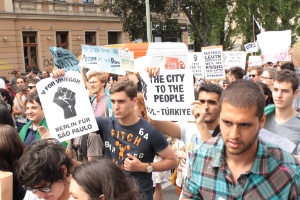
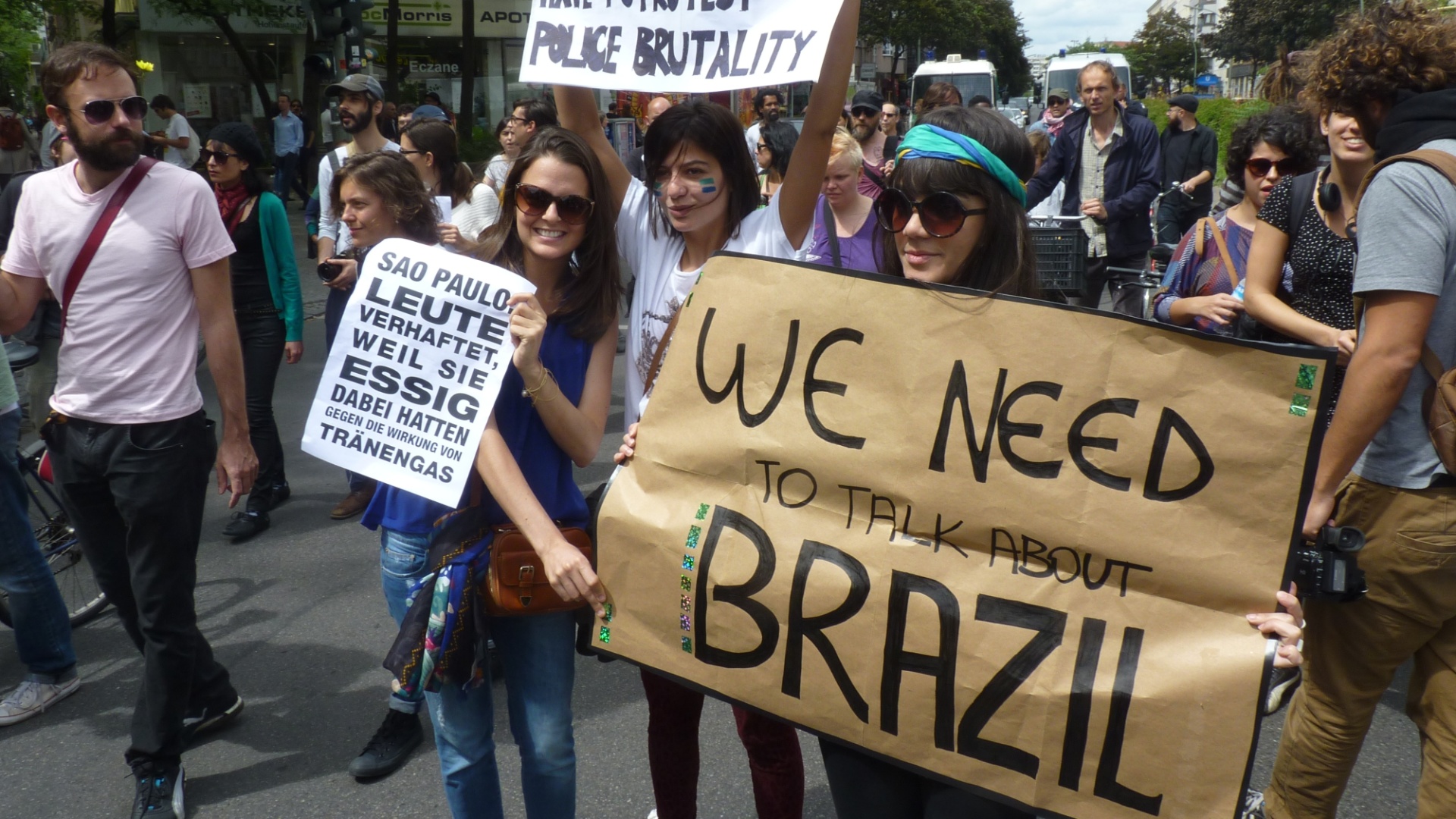
Search Interest
External References
[1] Wikipedia – 2013 Brazilian Protests
[2] Uol – Movimento "Revolta do Busão" protesta contra aumento da tarifa em Natal e entra em confronto com a polícia
[3] Uol – Protesto contra aumento de passagens acaba em tumulto em Porto Alegre
[4] Uol – Tarifas de R$ 3,20 entram em vigor hoje em SP; passagens subiram mais de 300% desde Real
[5] Facebook – Grande ato contra o aumento da passagem!
[6] Facebook – Passe Livre São Paulo
[8] Uol – Protesto contra aumento da tarifa de ônibus termina em confronto em São Paulo; 15 são detidos
[9] Facebook – HOJE!! Novo ato contra o Aumento da passagem em São Paulo
[10] Uol – Manifestantes contra tarifa do ônibus encerram protesto pacificamente na av. Paulista
[11] Facebook – Terceiro grande ato contra o aumento da passagem!
[12] Uol – Vídeo mostra PMs agredindo e prendendo jornalista em protesto contra tarifa de transporte em SP
[13] Uol – Em dia de maior repressão da PM, ato em SP termina com jornalistas feridos e mais de 240 detidos
[14] Uol – Repórter da TV Folha é atingida no olho por bala de borracha durante protesto em SP
[15] Carta Capital – Repórter de CartaCapital é detido por portar vinagre
[16] Uol – Com 30 mil e sem líderes, protesto em BH começa em festa e termina em tumulto
[17] Uol – Em clima pacífico, cerca de 40 mil pessoas protestam no Rio contra aumento da tarifa de ônibus
[18] Uol – Dez mil protestam em Curitiba vigiados à distância pela PM; grupo invade sede do governo
[19] Uol – Milhares de manifestantes tomam as ruas de Belém
[20] Uol – Manifestantes ocupam espelho d'água diante do Congresso
[21] ABC News – 5 Reasons Why Brazil Is Protesting
[22] The Guardian – Brazil protests erupt over public services and World Cup costs
[23] New York Times – Thousands Gather for Protests in Brazil’s Largest Cities
[24] El Pais – "“Nuestros 20 céntimos son el parque de Estambul”:http://internacional.elpais.com/internacional/2013/06/17/actualidad/1371496082_979062.html
[25] Facebook – Manifestation supporting the protesters in Brazil against the abusive transportation fares – London
[26] Facebook – Ato em favor às manifestações dos brasileiros
[27] Facebook – DEMOCRACIA NÃO TEM FRONTEIRAS – ATO A FAVOR DAS MANIFESTAÇÕES NO BRASIL – BUENOS AIRES
[28] Facebook – March in support of brazilian demonstrators in São Paulo and big cities of Brazil. Against police violence in Brazil
[29] Twitter – Tweet Results for #RevoltaDaSalada
[30] Twitter – Tweet Results for #RevoltaDoVinegra
[31] Twitter – Tweet Results for #VdeVinagre
[32] Twitter – Tweet Results for #ChangeBrazil
[33] Tumblr – Salad Uprising
Recent Videos 2 total
Recent Images 29 total
Share Pin
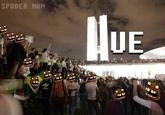
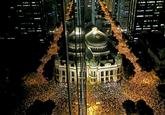
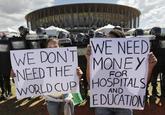


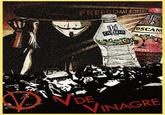


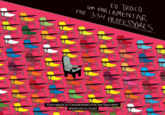

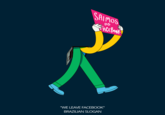
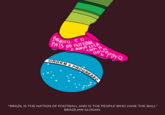
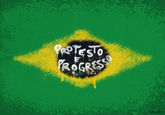
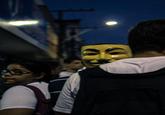
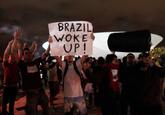

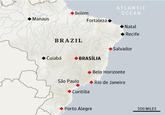
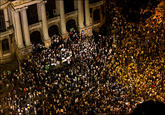
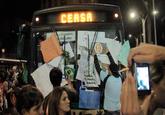

Top Comments
Youyou Meme
Jun 19, 2013 at 05:05PM EDT
Menthol
Jun 19, 2013 at 04:53AM EDT